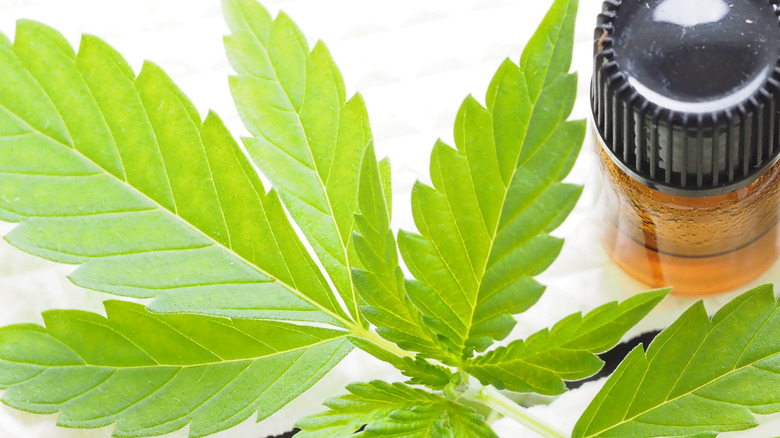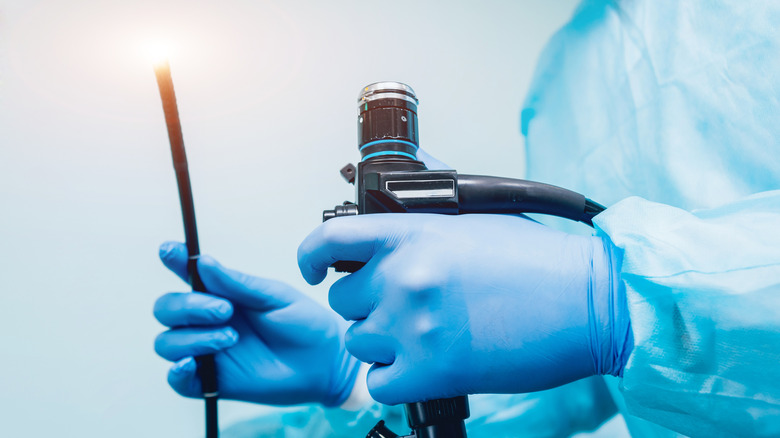Why Pot Users May Need More Sedation For Endoscopies
With marijuana becoming increasingly legalized and used, it's becoming more important for doctors to be aware of their patients' drug use. With increased drug use comes the possibility of increased risk during medical procedures, making it critical for doctors to be aware of any marijuana use prior to undergoing sedation. A new study shows that when experiencing an endoscopy, marijuana users required more sedation than normal.
An endoscopy is a procedure where a doctor uses a tiny camera at the end of a tube to look into your upper gastrointestinal tract (via National Institute of Diabetes and Digestive and Kidney Diseases). The lining of the tract is inspected to help diagnose and treat conditions that affect the esophagus, stomach, and upper intestines, such as ulcers, gastroesophageal reflux disease (GERD), cancer, celiac disease, blockages, and more. An endoscopy is usually performed at a hospital or outpatient center, and you'll typically receive light sedation while remaining conscious. Sedation medication is given through an intravenous (IV) needle in your arm to help you relax.
The link between marijuana and sedation
In a new study presented at the American Gastroenterological Association's Digestive Disease Week meeting in San Diego, researchers studied 419 patients undergoing gastric endoscopy or colonoscopy in Canada (via U.S. News & World Report). Researchers looked at the use of the sedatives midazolam, fentanyl, and diphenhydramine, finding that marijuana users were more likely to need higher total sedation for endoscopy, but not colonoscopy (which usually doesn't require as much sedation due to the location of the scope). While patients who used marijuana didn't have more discomfort or awareness during the procedure, they required more than 5 mg of midazolam, more than 100 mcg of fentanyl, or the need for diphenhydramine during the endoscopy, differing from non-marijuana users. The study stressed the importance of doctors being aware of their patients' cannabis use to be prepared for the possibility of increased sedation.
Since the study was presented at a meeting and is not yet published in a peer-reviewed journal, it's considered preliminary. More research is needed on the use of propofol for sedation, which is more commonly used in the U.S.


